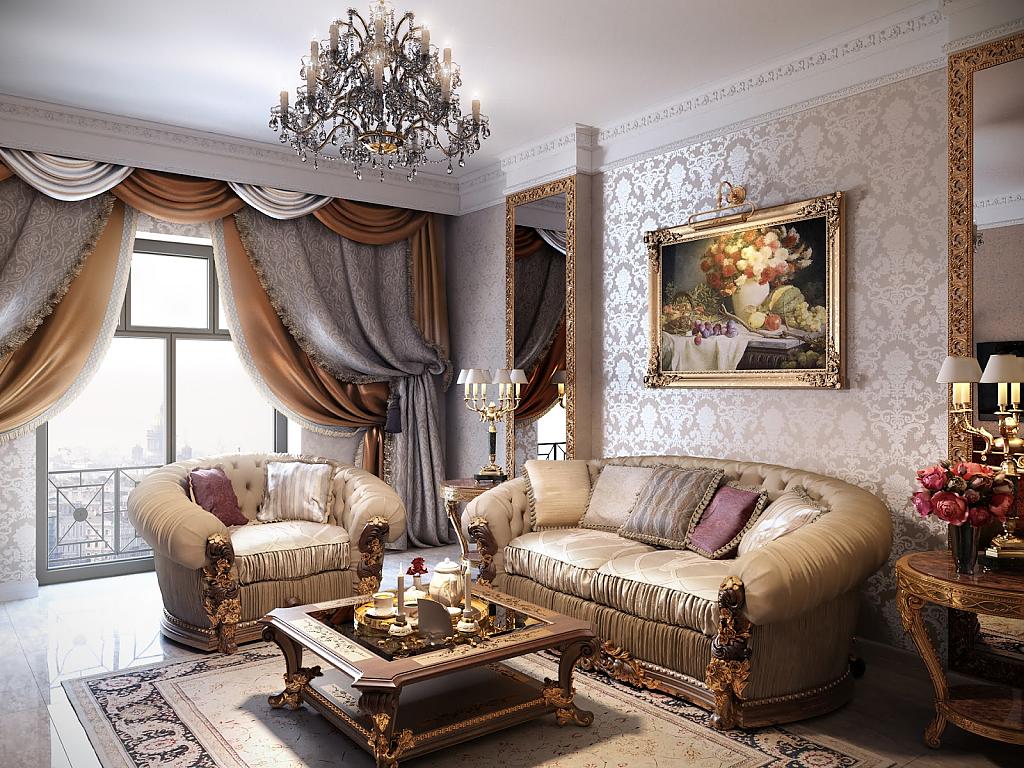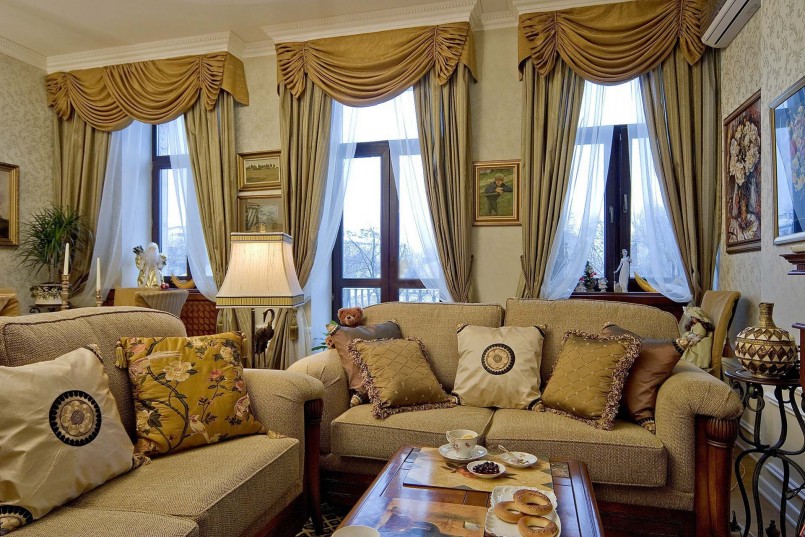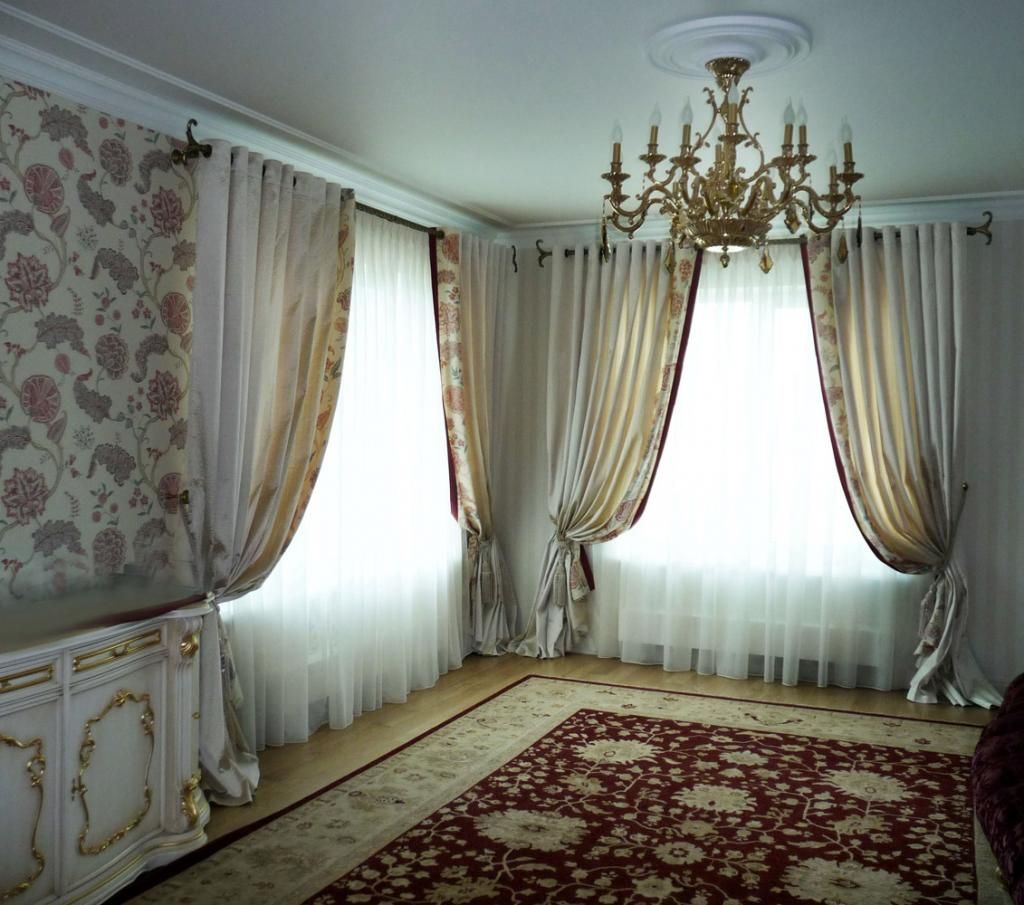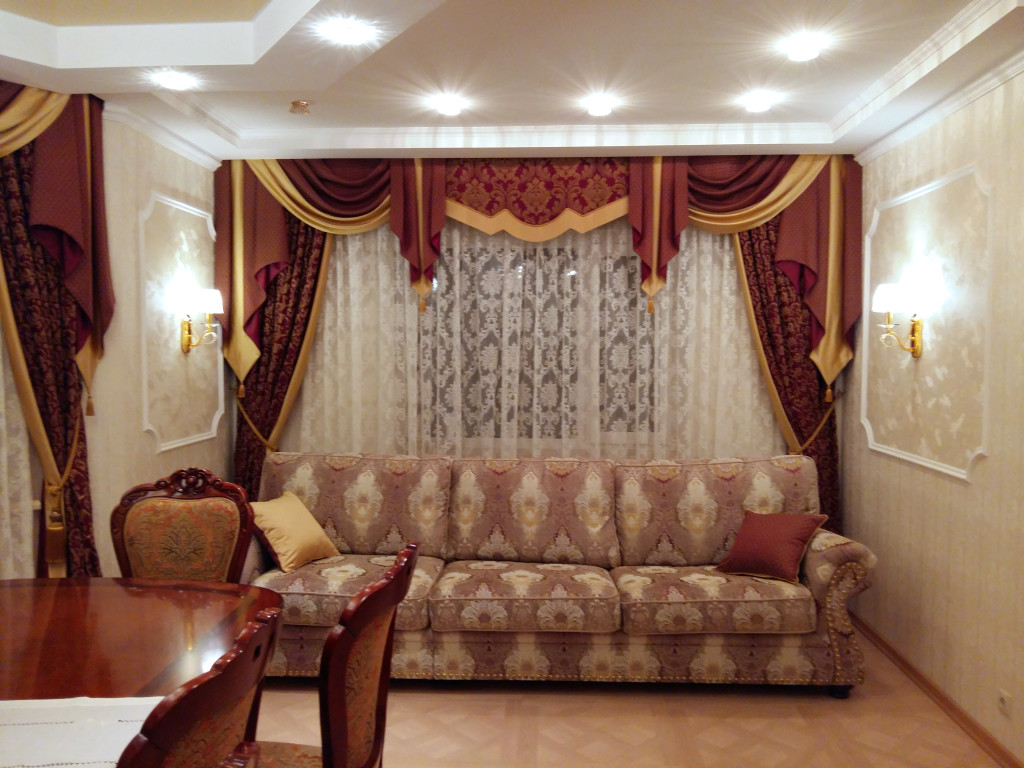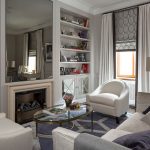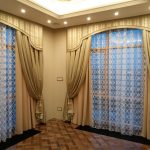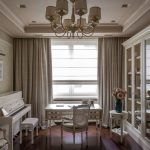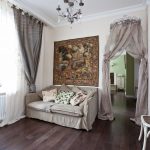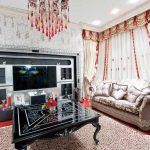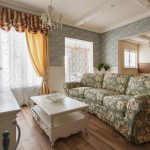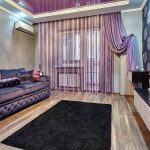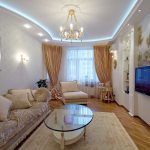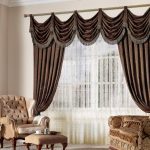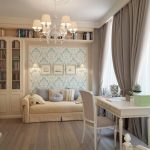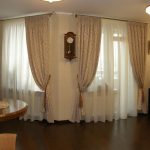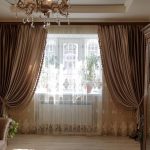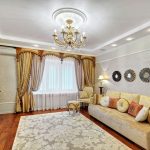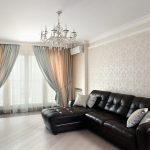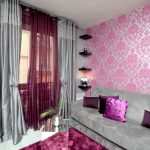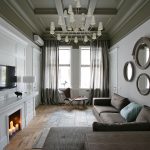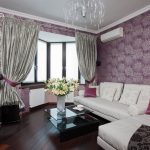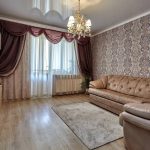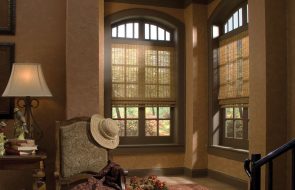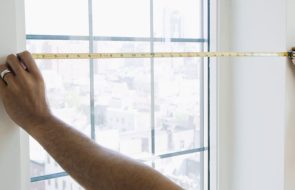Classic is a traditional style, restrained in details. It never gets old and never goes out of fashion. Today, classic has become modern, there are no pretentious and useless details in it. Everything in it is practical and laconic.
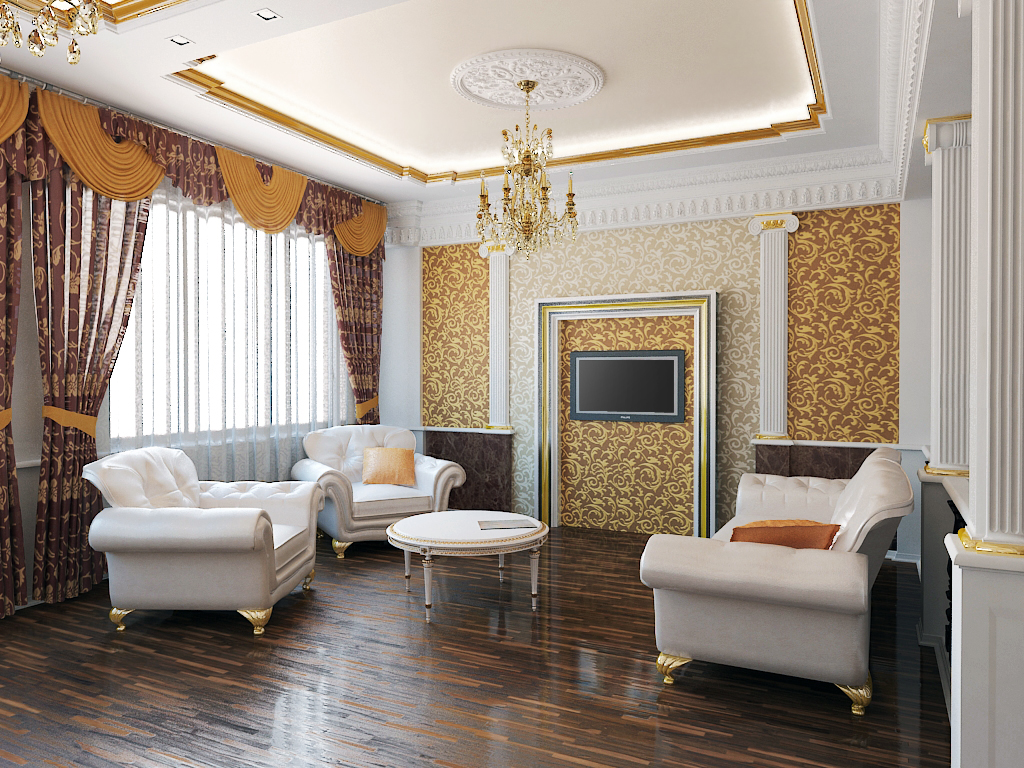
Content
- Modern classic style in the interior
- Classic curtains in a modern interior: features
- Curtains for the living room
- Curtains for other rooms
- What fabrics are suitable for sewing classic curtains?
- The best examples of curtain models in the style of modern classics
- VIDEO: Living room design in a modern classic style.
- 50 design options for curtains in the style of “modern classic”:
Modern classic style in the interior
Taking antique, strict lines as a basis, modern classics have swept away everything unnecessary, heavy and non-functional. The main features of the updated design:
- There is a lot of light in the room and the space is not cluttered.
- There is always symmetry.
- The space is divided into functional zones.
- The decor is not pompous, but moderate.
- The colours are soft, muted, closer to pastel tones.
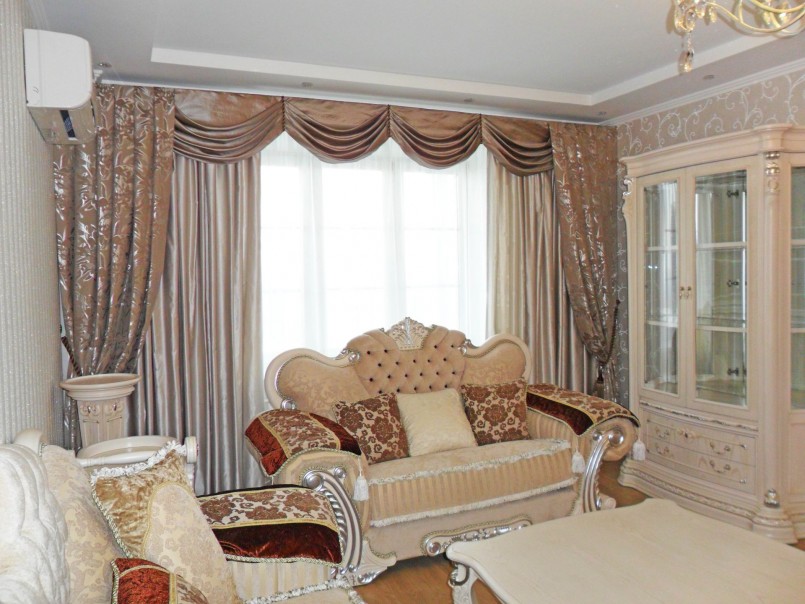
If you meet all these requirements, the interior will be restrained, expensive, but not too pompous. Against this moderate background, spectacular details will show themselves well. It is impossible to imagine the classics without them.
- Gypsum stucco.
- Crystal vases.
- Candelabra with multiple pendants.
- Mirrors with swirls.
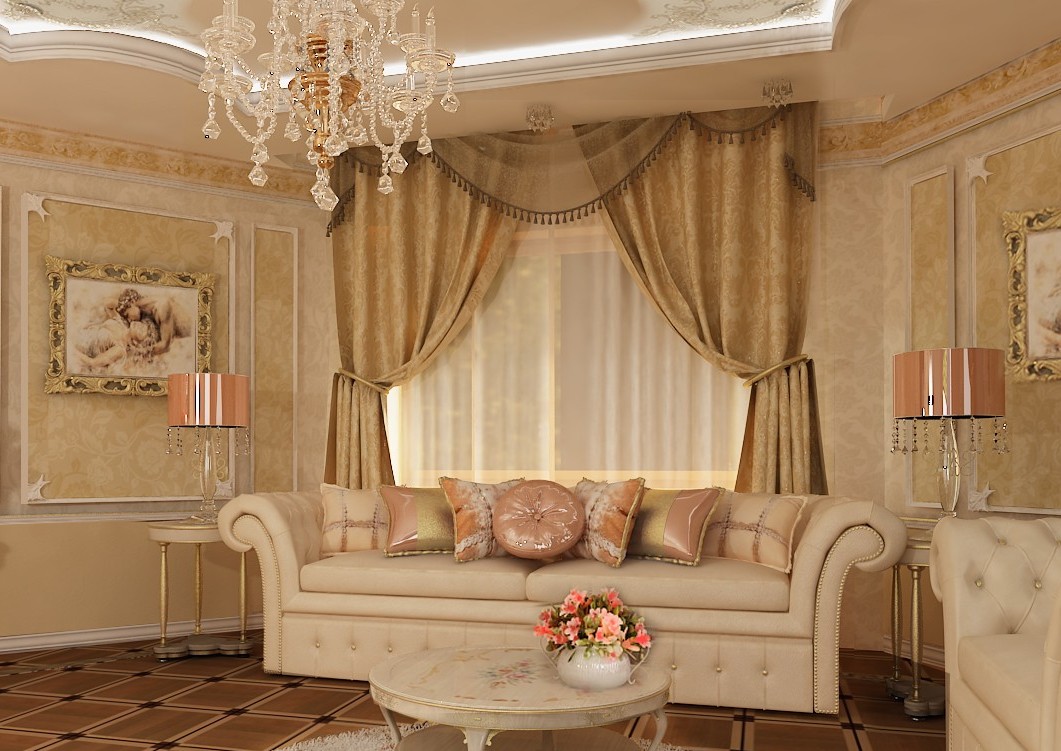
Initially, only natural materials were used for interior decoration. Wood for finishing and furniture was selected from high-quality wood species. Textiles were also selected from natural materials: silk, velour, wool, satin. Today, modern classics allow the use of artificial materials.
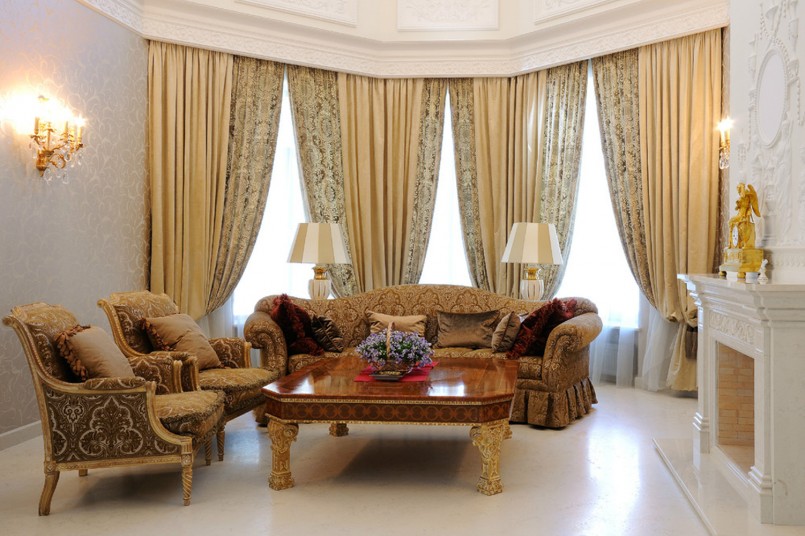
There are also other features that differ from the old, reference model:
- It is possible to decorate ceilings with a glossy stretch coating.
- Capitonné stitching is often present in the interior.
- The use of photo wallpaper for wall decoration is permitted.
- A combination of straight and smooth lines is used.
- White and beige are the main colors in the interior.
- The patterns used are faded motifs in pastel colors.
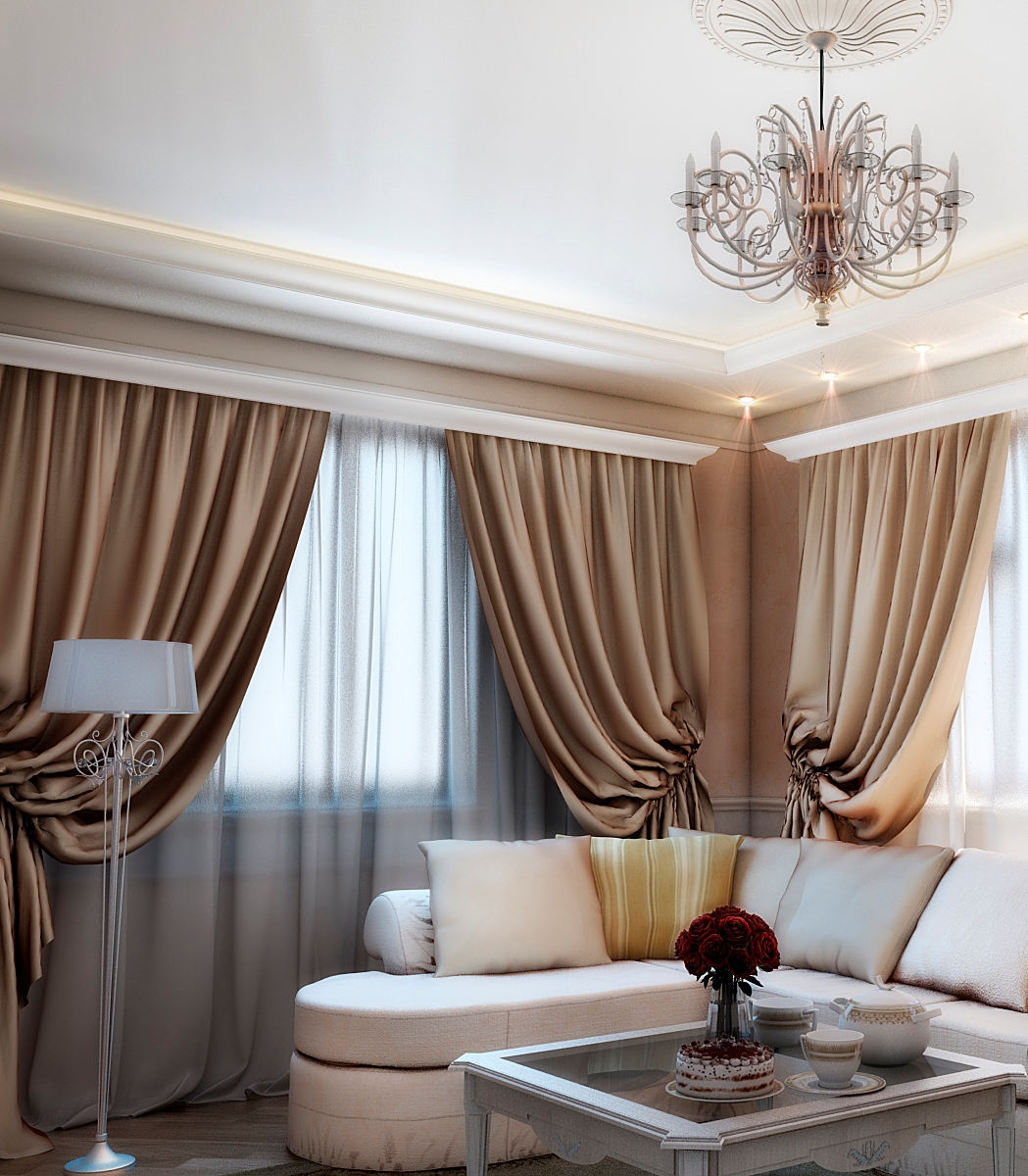
When it comes to textiles, they are often made of rough, monochromatic textures. For example, simple linen curtains and a monochromatic veil are one of the options for a modern solution to a classic interior.
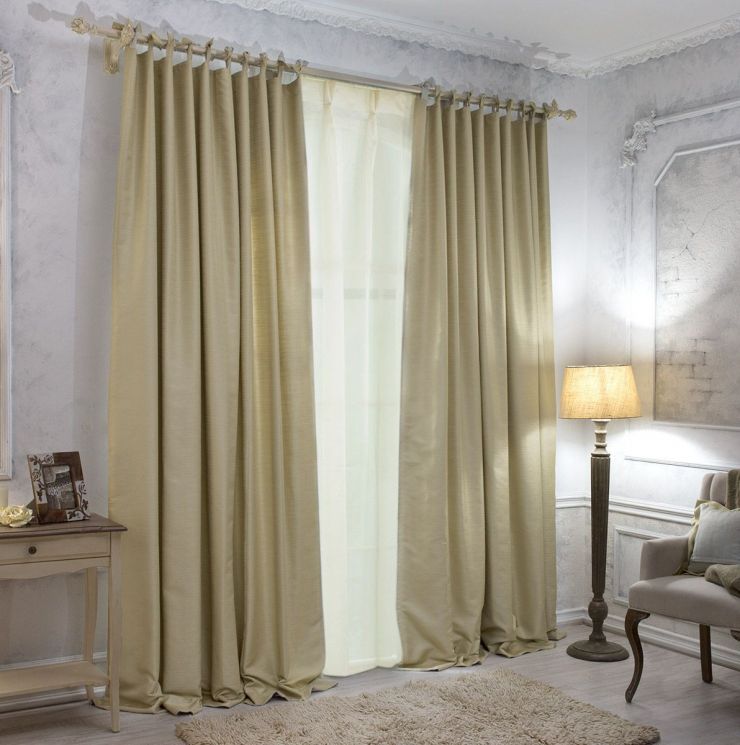
Classic curtains in a modern interior: features
Modern classics is a style that has absorbed all the best from ancient and other historical eras. At the same time, it has excluded everything unnecessary, bulky and impractical. To buy beautiful curtains for the living room in the style of modern classics, it is necessary to take into account several important points.
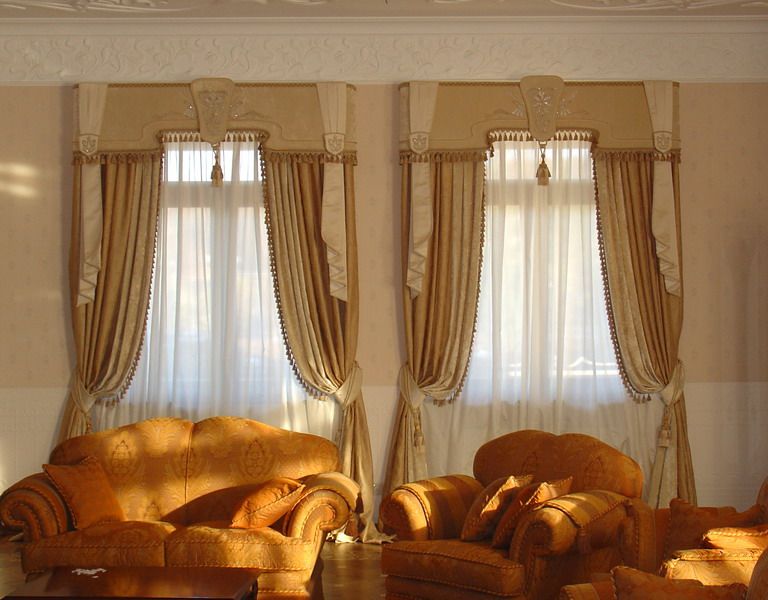
- Simplicity of design. The fabric should be simple, without lush draperies, flashy patterns and bright colors.
- Ease of use. Curtains are easy to open and close. Often a special mechanism with a remote control is used.
- Symmetry. Chaoticism is alien to the ordered style, originally from antiquity. Classic curtains are strict symmetry and order. Asymmetrical draperies are allowed with rare exceptions.
The classic style does not accept synthetics; noble fabrics are acceptable: velvet, silk, satin. - Soft color. The design involves the use of subdued tones. The most popular are creamy, snow-white, milky. Light shades of gray, brown and turquoise are also used.
- Plant ornament. Often the curtains are monochromatic. If there is a pattern, it is not bright, based on plant motifs, curls, damask patterns.
- Combination of textures. Two different textures are used to decorate the windows. One is light, translucent, white, and monochromatic. The other is a dense fabric in gray, brown, and beige tones.
- Drapery. Lambrequins, tiebacks with tassels, straight panels or folded "awnings" - any type of drapery can be used to decorate windows.
The signs of classic curtains are the presence of tulle, sliding curtains with or without a grab, dense fabric material, long panels, and graceful folds.
Curtains for the living room
Curtains in the interior of a living room in a classic style should differ from the textiles of other rooms. The fabric chosen is more prestigious, expensive, but not heavy. Lightness and practicality are the two main distinguishing features of the classics that are relevant today. Several curtain options are suitable for the living room.
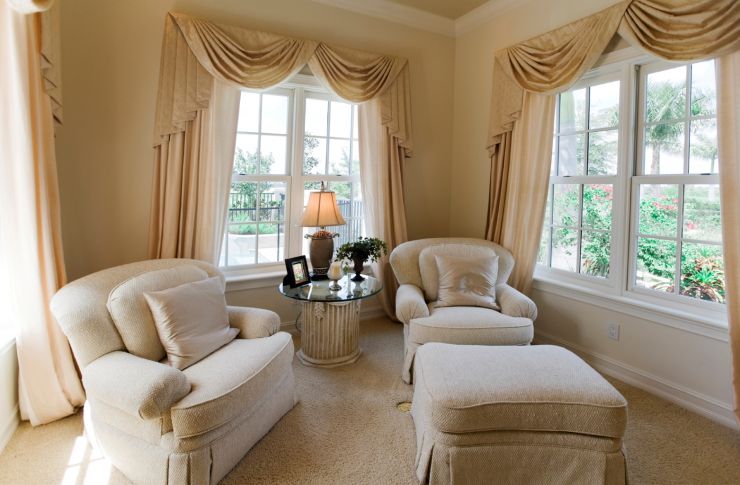
- Swags. They are a "sagging" drapery made of fabric in the center of the cornice. They will fit well into the interior of a spacious living room. Swags must be symmetrical.
- Curtains with eyelets. It is important to choose the right material here. Eyelets simplify the decor a little. Therefore, the material should be rich in texture.
Today the curtain market offers a wide range of window decoration options. - "Hourglass". To create this shape, you will need special grabs. They can be different, but the best ones are: static metal, hairpins, ties with tassels, grabs sewn from curtain fabric.
- Antique motifs. Plain curtains, complemented by the Cretan Wave patterns, will be quite appropriate. As well as Roman roller blinds made of natural linen with ancient Greek and ancient Roman designs.
- Lambrequins, tassel grabs. These details are inherent in the style and will become a luxurious addition to the window design.
They look aesthetically pleasing, are suitable for a small room, and are easy to maintain.
Important! If the walls are covered with plain wallpaper, you can choose curtains for the living room in a classic style with a pattern. If, on the contrary, the wallpaper has an ornament, it is better to choose a plain material.
Curtains for other rooms
Each room in an apartment or house has its own purpose. Accordingly, curtains for each room should be different. For the bedroom, children's room or kitchen, you need to select different models by color, texture, design.
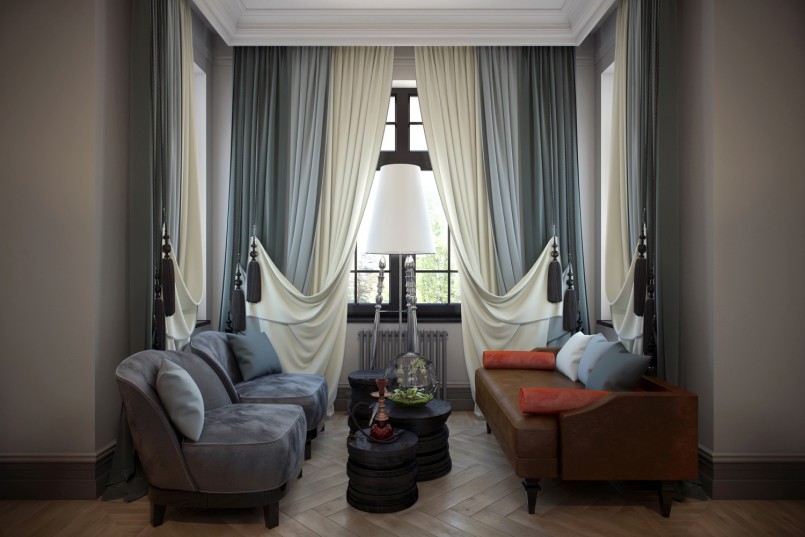
Bedroom
In the bedroom, the main criterion is light protection. Curtains should be thick to protect the room from light while you sleep. As a rule, this is a standard combination of translucent tulle and thick, even curtains. But there are also new ideas that refresh the strict design, making it more interesting.
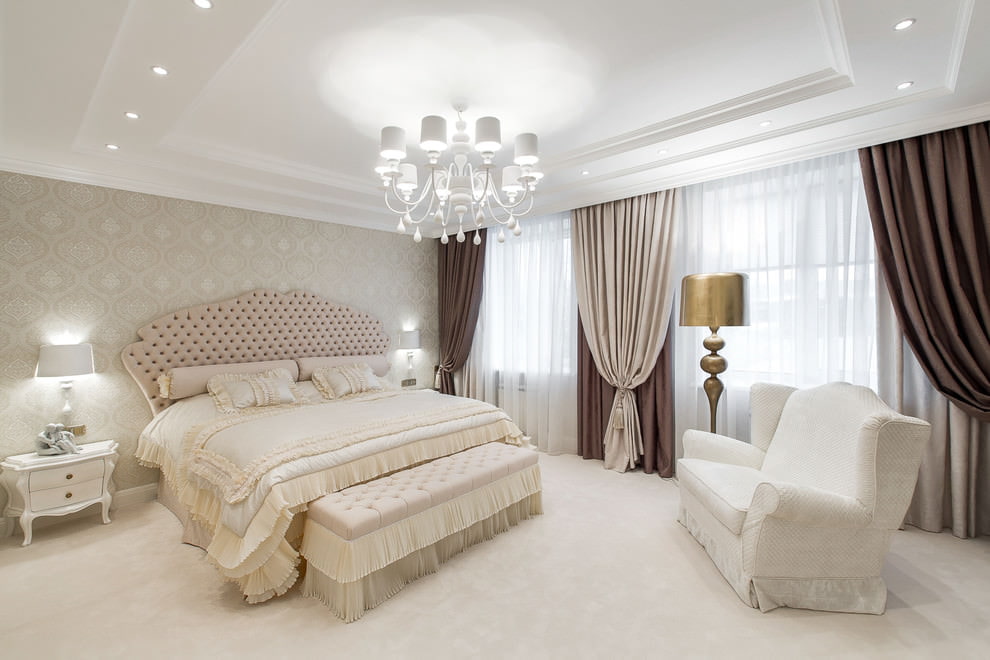
Double-layer curtains. They do not violate the rules of style, but look original. Double curtains consist of a background layer and an upper one. It is advisable to match the background part with the bedspread by color.
Floor-length straight curtains + Roman blinds. This combination looks stylish. But it also has a practical side: double protection from the sun and ease of use.
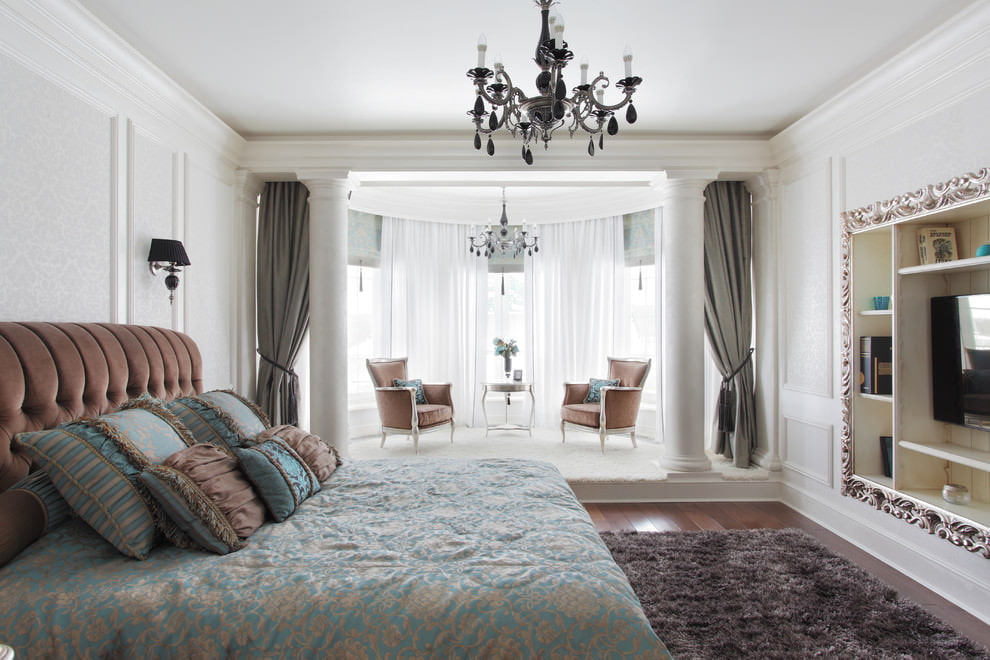
Lambrequins + 1 curtain. As is known, the classics do not accept asymmetry. But modern design solutions allow you to break the immutable rule. The new idea looks like this: along the entire length of the cornice there is translucent tulle, a dense curtain in a gathered form is located at the head of the bed, opening the entire view from the window. A lambrequin or swag is suspended at the top.
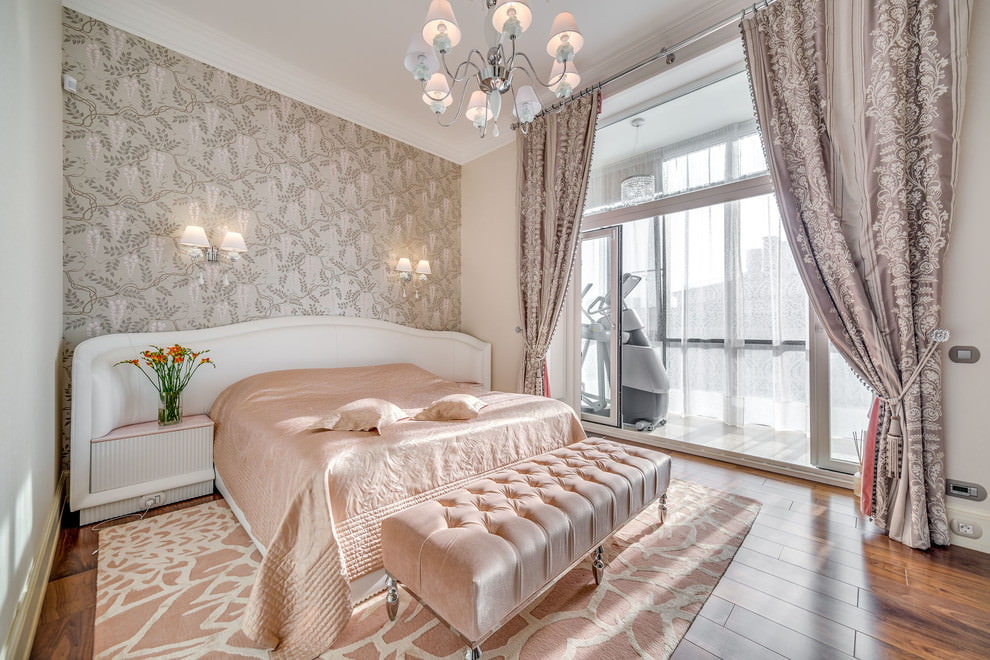
Advice. The color scheme for the bedroom should be calm, not irritating, conducive to rest. Caramel, sand, vanilla shades are perfect.
Children's
For a child's room, curtains in the classic style are a great option. The simple, laconic design is practical - there are no folds or puffs that collect dust. It is easy to care for, and the simple opening method is suitable even for the smallest inhabitants of the room.
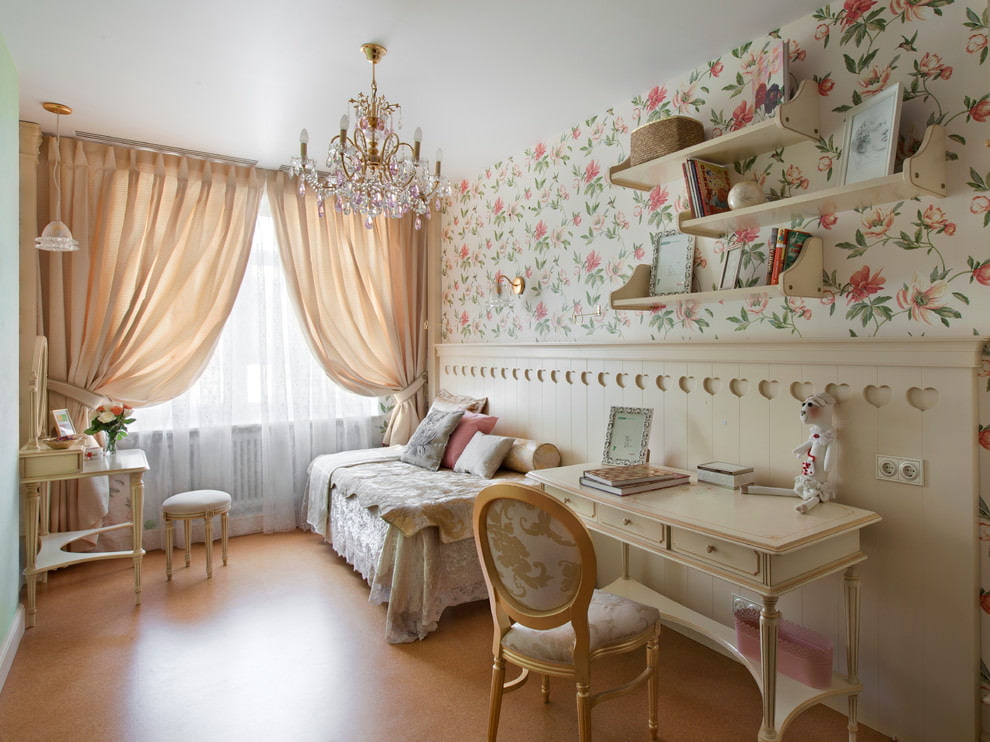
Another plus is that the moderate design allows you to decorate a room where children of different sexes live. Restrained straight curtains of chocolate color with a single-color tulle in beige tones are suitable for a children's room in which you need to make a universal design for both a girl and a boy.
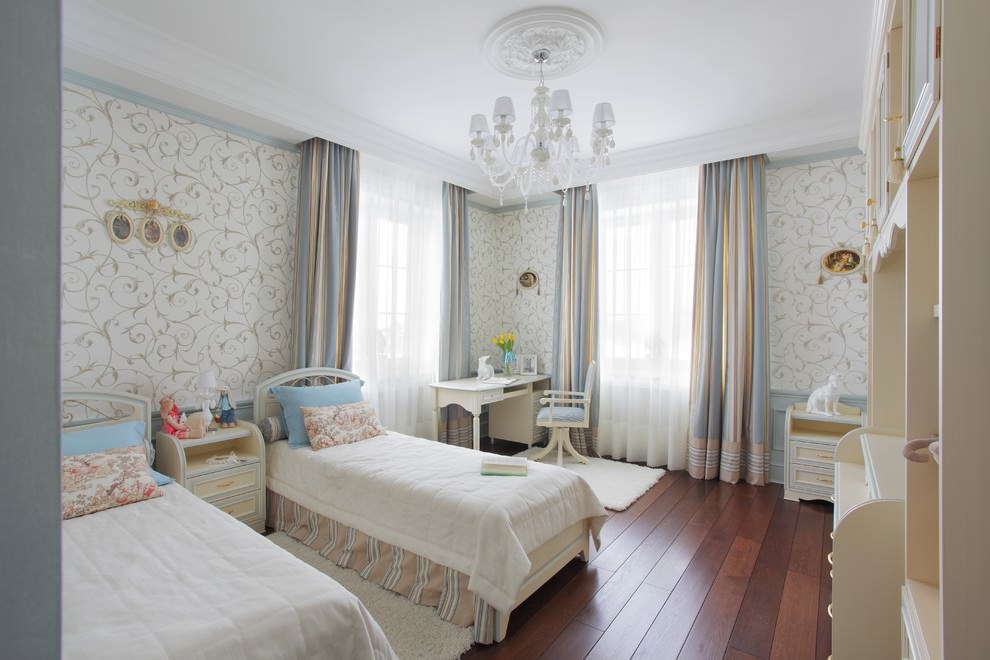
Kitchen
It is better to choose a calm color for curtains in the kitchen. Avoid too saturated and deep shades. They will add "heaviness" to the atmosphere and will look a little depressive. Almost all types of short-cut curtains will be appropriate in the kitchen.
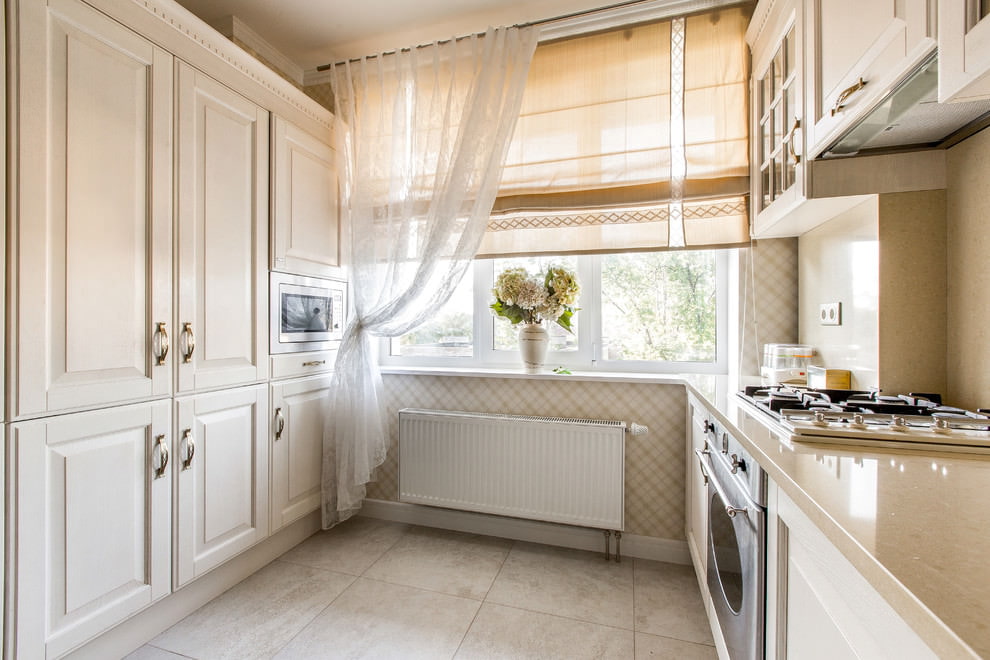
- "Cafe".
- Austrian curtains.
- French short "marquises".
- Roman roller blinds.
- Lambrequins.
Standard, straight, long curtains are also acceptable in the kitchen. But they are more difficult to maintain, because the kitchen space is quite easily soiled.
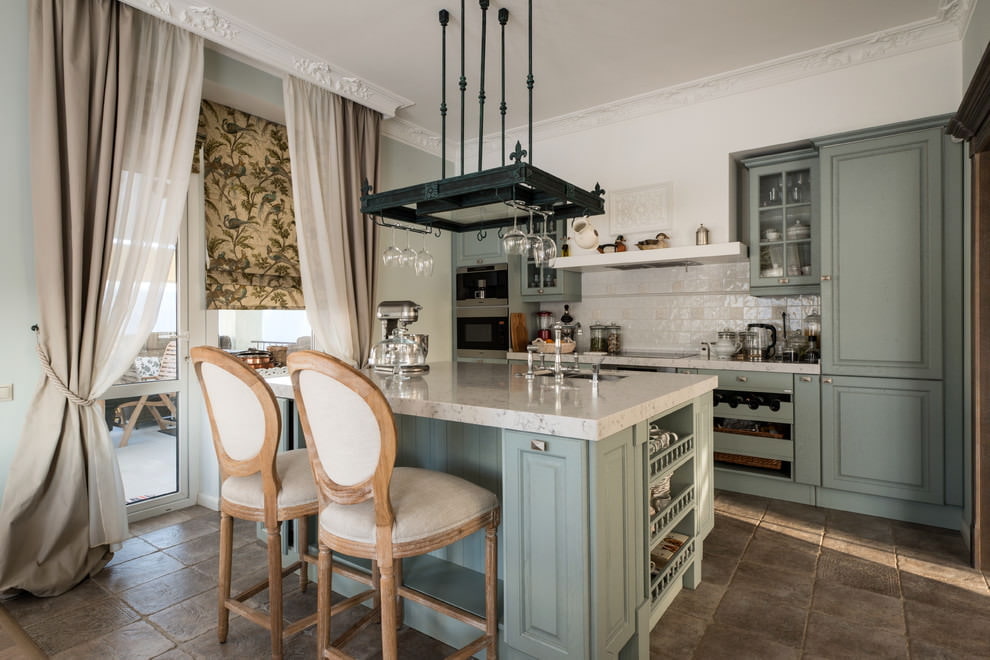
What fabrics are suitable for sewing classic curtains?
The fabric should be distinguished by nobility. Even if the texture is simple and rough, it always has a touch of aristocracy.
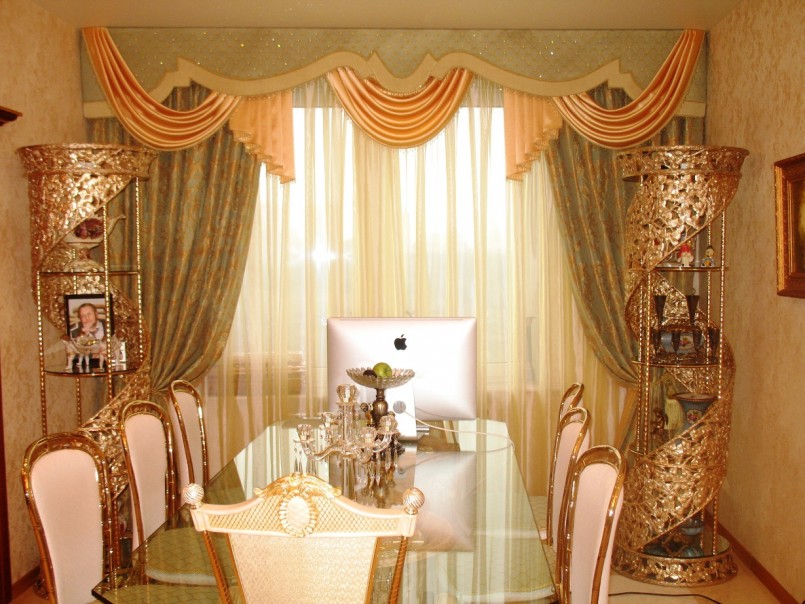
The following materials are best suited.
- Silk.
- Taffeta.
- Atlas.
- Chenille fabric.
- Velvet.
- Jacquard.
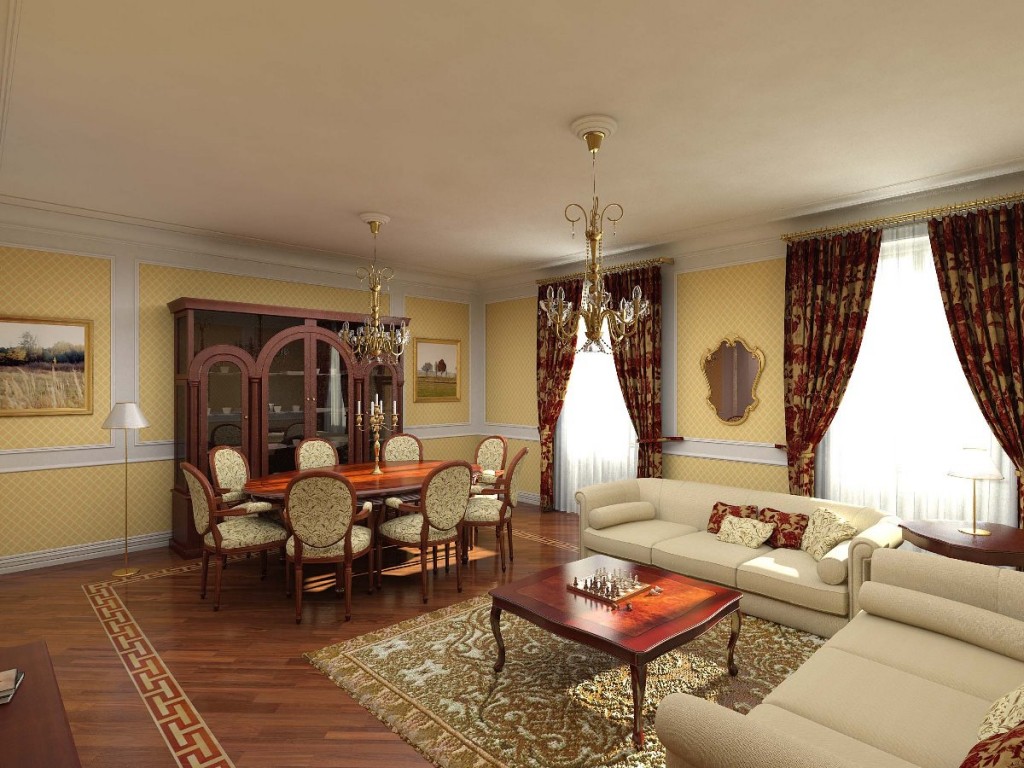
Not only the material affects the appearance of the curtains, but also the type of cornice. The first requirement for it is durability. After all, rich draperies and heavy textures are often used.
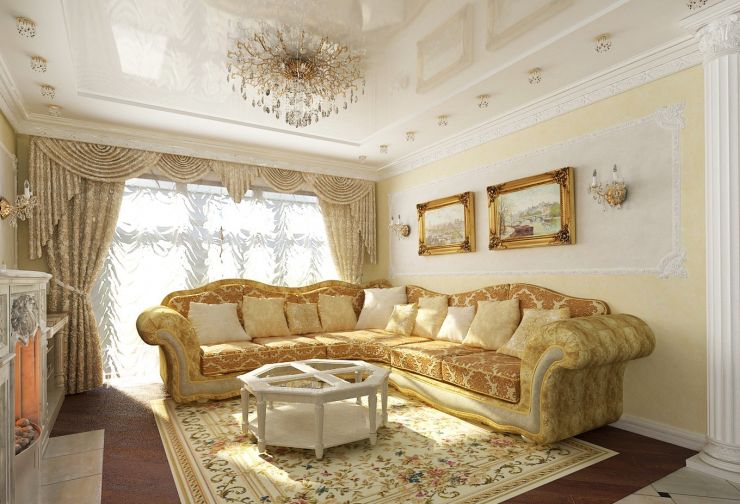
The following cornices can handle increased loads:
- Baguette. Their advantage is that they hide the structure of the cornice and the fastenings under the bar.
- Tubular. They are a one- or two-level rod with rings. They are fixed at the edges with decorative knobs.
- Forged. Forging looks heavy and expensive, so it is better to choose curtains that are not too pompous. Forged iron will withstand even the heaviest fabrics.
- Profile. Made of profile aluminum. Often used to decorate bay windows or corner windows.
- Wooden. They come in different modifications: tubular, baguette, ceiling, wall.
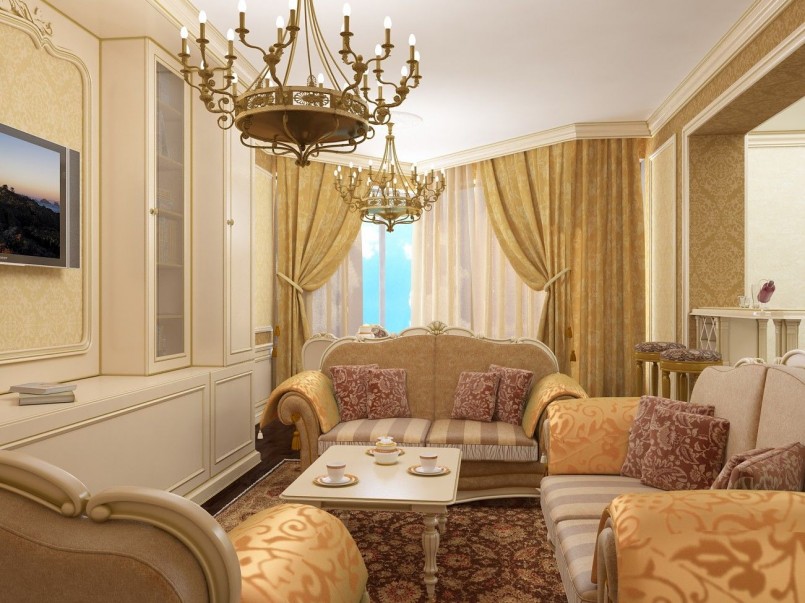
The best examples of curtain models in the style of modern classics
Restraint of design, calm colors, beautiful textures of fabrics - all this became the basis for the design of classic curtains. The variety of fabrics, cornices, draperies allows you to create incredibly beautiful and stylish solutions for the living room, children's room, bedroom, study and kitchen.
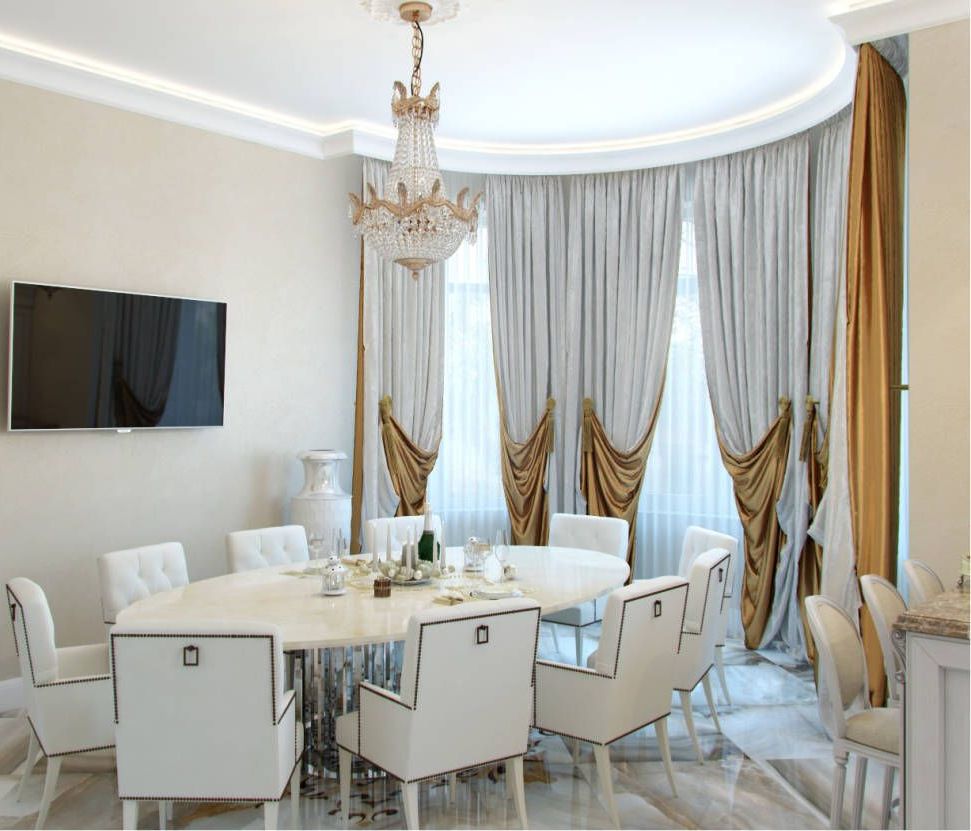
Photos of designer novelties of window textiles will help you decide on the choice of one or another model for decorating any room of an apartment or house.

